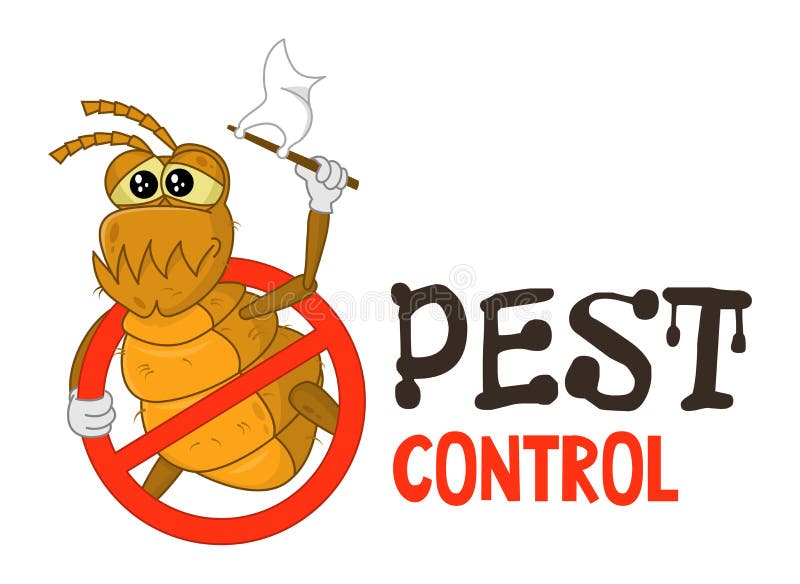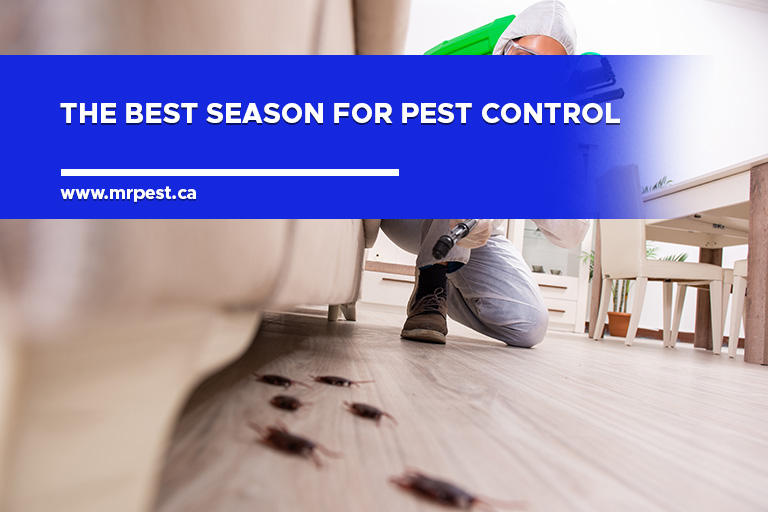Safe and Reputable Pest Control for Lasting Defense
Effective pest management needs a diverse technique that balances eco-friendly honesty with the requirement for reliable pest suppression. The subtleties of these methods might not be promptly clear, prompting a closer exam of the techniques that can lead to lasting pest control end results.
Understanding Insect Control Methods
Insect control encompasses a variety of approaches focused on handling and getting rid of unwanted bugs and rodents that can threaten both wellness and property. Understanding these methods is important for efficient insect management.
The main classifications of bug control techniques include mechanical, biological, and chemical techniques. Mechanical approaches involve physical barriers and traps to stop pest entrance and capture unwanted species. Using displays on windows or utilizing sticky traps can substantially decrease pest populaces without introducing unsafe substances - exterminator coquitlam.

Chemical bug control is frequently one of the most acknowledged approach, utilizing chemicals to eliminate bugs. These chemicals can be effective yet have to be used with care to prevent negative effects on non-target varieties and the atmosphere.
Benefits of Eco-Friendly Solutions
How can environment-friendly solutions change parasite control methods? The fostering of environmentally friendly pest control methods uses countless benefits, dramatically enhancing the performance and security of parasite administration (exterminator coquitlam). Firstly, these services use all-natural ingredients, lowering the reliance on dangerous chemicals that can posture dangers to human health and wellness and the setting. This change not just safeguards animals and households however likewise decreases the potential for soil and water contamination.

An additional advantage is the positive influence on neighborhood biodiversity. Environmentally friendly options are designed to target particular parasites while maintaining useful pests and wildlife, advertising a well balanced community. This technique aligns with the expanding consumer need for lasting techniques, boosting the track record of bug control carriers.
Integrated Parasite Administration Methods
The implementation of eco-friendly remedies normally results in the fostering of Integrated Bug Management (IPM) approaches, which even more enhance insect control effectiveness. IPM is a holistic technique that integrates multiple techniques to take care of pest populaces while minimizing ecological impact. This approach emphasizes making use of organic, social, mechanical, and chemical controls, making certain a balanced and lasting technique of insect monitoring.
One essential element of IPM is the detailed analysis of parasite activity and ecological problems. By checking insect populaces and identifying their life cycles, professionals can apply targeted treatments that interrupt the pest's environment or lifecycle, decreasing dependence on chemical pesticides. Furthermore, social techniques such as crop rotation and environment control special info can considerably lessen parasite facility and reproduction.
One more essential component is making use of biological control representatives, such as beneficial insects or microbes, which can naturally reduce pest populaces. When chemical applications are needed, IPM prioritizes the use of low-risk pesticides and uses them uniquely, minimizing direct exposure to non-target organisms and people.
Including IPM techniques not only enhances insect control performance however also advertises a more secure community, straightening with the expanding demand for lasting techniques in parasite management.
Safe Practices for Home Owners
Recognizing the significance of risk-free practices in pest control can equip home owners to effectively manage insect concerns while safeguarding their health and the atmosphere. Carrying out precautionary measures and safe techniques is crucial in decreasing exposure to damaging chemicals.
Property owners need to first examine their environment for problems that attract insects, such as standing food, clutter, and water waste. Frequently cleaning and securing entry factors can prevent bugs from attacking the home. Using natural deterrents, such as necessary oils or diatomaceous earth, can supply efficient termite damage options to chemical pesticides.
When chemical therapies are required, property owners must choose products that are specifically classified as risk-free for property use. It is vital to adhere to application standards carefully to prevent too much exposure. In addition, making use of targeted treatments in locations where pests are recognized, instead of covering spraying, can substantially minimize chemical use.
Lastly, keeping open communication with bug control experts is crucial. Homeowners need to ask about the security of items utilized and demand he has a good point green options whenever feasible. By taking on these secure practices, homeowners can produce a much healthier living atmosphere while effectively managing pest issues.

Tips for Long-Term Protection
Establishing a bug monitoring technique that emphasizes lasting security can substantially enhance the efficiency of the secure techniques formerly gone over. To attain this, house owners must execute regular inspections of their building, focusing on hidden areas such as attics, cellars, and crawl spaces. Early discovery of bug activity is essential in avoiding infestations from taking hold.
These techniques reduce attractants that attract pests into the home. Securing entrance factors, such as splits around windows and doors, can successfully block possible parasite accessibility.
Landscape design ought to additionally be taken into consideration; keeping plants cut and preserving a distance in between plant life and the home minimizes hiding spots for pests. Making use of all-natural deterrents, such as crucial oils or diatomaceous earth, can further prevent infestations without turning to rough chemicals.
Lastly, teaming up with a professional parasite control service for regular analyses can supply an added layer of safety. These specialists can supply tailored suggestions and progressed treatments, making sure that your home continues to be protected against pests in the long-term.
Verdict
Finally, dependable and risk-free bug control needs a complex strategy that stresses environmentally friendly techniques and integrated insect administration. By carrying out all-natural deterrents, carrying out routine assessments, and keeping correct hygiene, homeowner can considerably minimize bug populations while safeguarding useful insects and the environment. Collaboration with specialist parasite control solutions boosts the performance of these methods, making sure tailored solutions that provide lasting defense and tranquility of mind against future infestations.
Effective parasite monitoring needs a multifaceted approach that stabilizes environmental integrity with the demand for efficient insect reductions. The fostering of green insect control methods supplies many benefits, significantly boosting the efficiency and safety of parasite administration.The implementation of environment-friendly services normally leads to the adoption of Integrated Pest Administration (IPM) techniques, which better improve pest control efficiency. exterminator coquitlam. By keeping an eye on insect populaces and determining their life cycles, professionals can implement targeted treatments that disrupt the parasite's habitat or lifecycle, minimizing reliance on chemical pesticides.In final thought, secure and trustworthy parasite control requires a complex approach that highlights green methods and incorporated parasite management